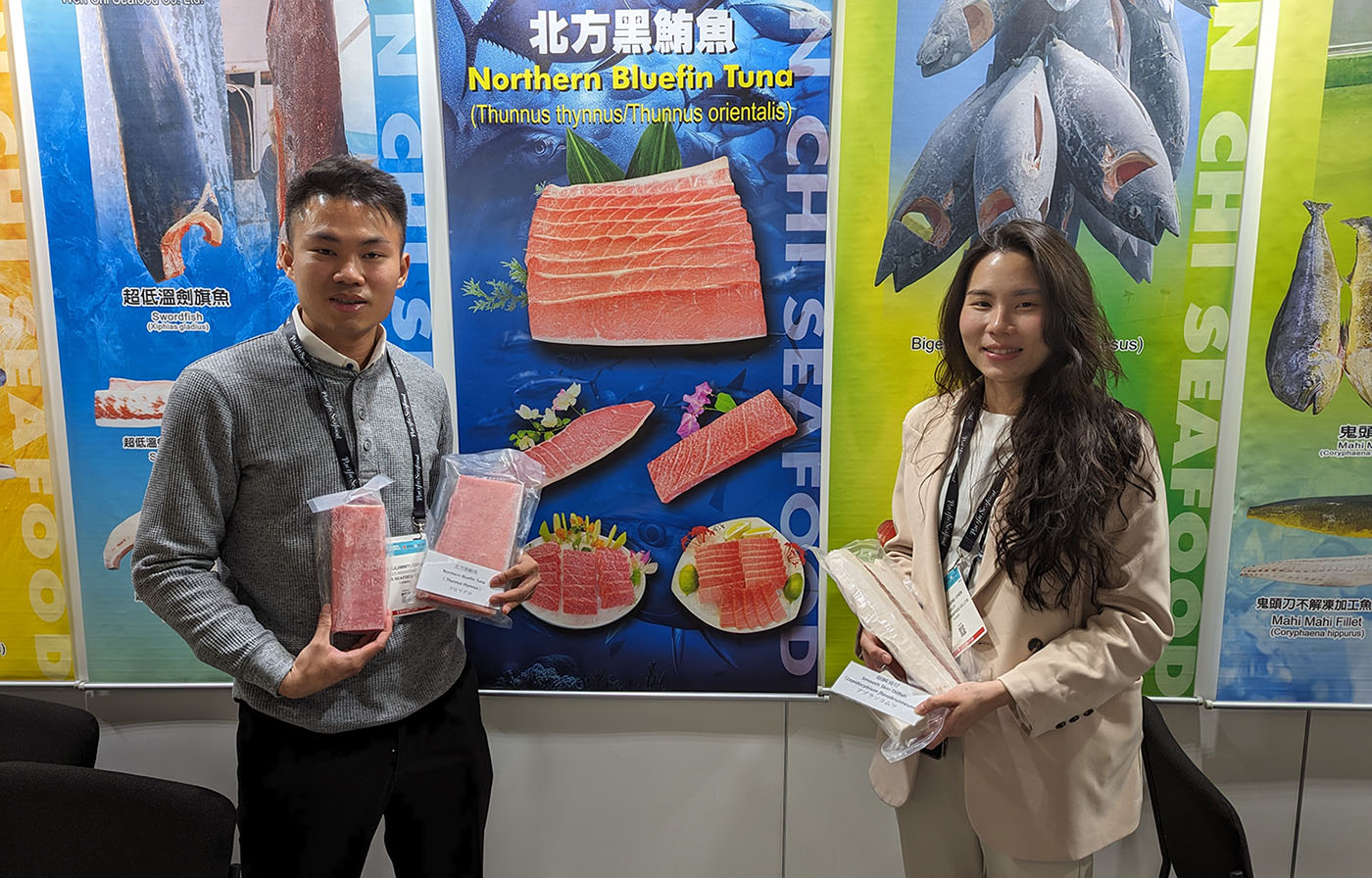Xinyuan, Taiwan-based Wen Chi Seafood is working to expand markets for its super frozen tuna and other super frozen species, betting the high quality of its products will appeal to new customers.
Wen Chi Seafood – originally called Wen Chi Store – started in 1990 and has steadily improved its processing to provide higher-quality tuna, marlin, swordfish, sailfish, shark, mahi, and more. In March 2013, the company officially opened a new factory that allows it to maintain super frozen status for its fish – keeping things cold soon after it is caught all the way through processing.
Wen Chi Seafood CEO Assistant Wei Ju Chen told SeafoodSource the company freezes its species like tuna to 60 degrees Celsius below zero and maintains that temperature throughout its journey to its customers.
“When we catch a fish, it’s frozen the first time in the first moment, and when we process, we don’t need to defrost it. So, when it goes to the customer, that is the first time that it defrosts,” Chen said. “Since it’s kept at minus 60, it’s fresh.”
A lot of the tuna caught in other countries, Chen said, is caught via purse seiners and can also be treated with carbon monoxide. Treating tuna with carbon monoxide gives it a redder color – a process banned in Japan, the European Union, and Canada but still allowed in the U.S.
Wen Chi’s tuna is caught exclusively by longliners, which offer better quality and better welfare conditions when brought on board. The tuna being superfrozen immediately also helps keep it as fresh as possible.
Chen said that freshness has been recognized by consumers, especially in Japan – a country known for its emphasis on quality tuna.
“Japan is one of our biggest markets,” Chen said.
The company also works to ensure it reduces its waste, as its byproducts are processed and then also sent to Japan for use in fish oil processing.
While Japan is its biggest market, Chen said the company is also seeing more success in the U.S., with more customers helping to build the infrastructure needed to deal with super frozen tuna.
“At first, [U.S. customers] didn’t have knowledge on how to defrost our products; that’s why they use [carbon monoxide-treated] tuna,” Chen said. “But, I feel like some people are starting to build super frozen warehouses and trying to import super frozen tuna, and we are happy to see this.”








